About CAMM
Our work is built around a simple mission: to bring people closer to Jesus through Mary. Through our programs, outreach, and the Basilica Shrine, we create opportunities for all to deepen their faith and become part of Mary’s Miraculous Medal Family.
The Central Association of the Miraculous Medal
Our Mission
CAMM’s mission is to help deepen devotion to Mary and bring people closer to Jesus through the message of the Miraculous Medal. Like Mary’s Chair, it sits on four key pillars:
- Sharing the promise of the Miraculous Medal and inviting the world to experience Mary’s grace.
- Supporting the ministries of the Vincentian Priests and Brothers who serve the poor and marginalized.
- Maintaining the Basilica Shrine as a place of welcome, prayer, and pilgrimage.
- Expanding outreach and education to inspire future generations of believers through our Beyond Sunday® Programs.
How We Sustain Our Mission
Your Support Makes the Mission Possible
Since our founding in 1915, CAMM has relied on the generosity of members and supporters to sustain the Basilica Shrine and the ministries of the Vincentian Priests and Brothers.
Fr. Joseph Skelly, CM, established a membership program to unite the faithful in devotion to Mary and provide the resources needed to grow CAMM’s mission. Today, when you enroll yourself or a loved one in Mary’s Miraculous Medal Family, you become part of a prayerful tradition that spans generations. Members share in Masses offered by the Vincentians throughout the year and receive a Miraculous Medal, a membership card, a membership booklet, and a subscription to the Message Magazine.
By joining or supporting CAMM, you help us spread Mary’s message, inspire devotion, and reach new generations through retreats, events, and programs like Beyond Sunday®. Your generosity makes this mission possible.
The Story of the Miraculous Medal and CAMM
Discover how a quiet midnight apparition in Paris sparked a worldwide devotion. From St. Catherine Labouré’s vision to the founding of CAMM, the Basilica Shrine’s story is one of faith, community, and grace carried forward through generations.
1830
Mary Appears to St. Catherine Labouré
Rue du Bac Chapel, Paris
Late one night, St. Catherine Labouré was awakened by a soft voice calling, “Sister, sister, sister.” Guided to the chapel, she encountered the Blessed Mother, who sat near the altar and spoke with her tenderly. St. Catherine knelt at Mary’s feet, resting her hands in Mary’s lap, and later described it as “the sweetest moment of my life.”
Four months later, Mary appeared again, standing on a globe, rays of light streaming from her hands. Framed by the words, “O Mary, conceived without sin, pray for us who have recourse to thee,” Mary asked Catherine to have a medal struck in her honor, promising great graces for all who wore it with devotion.

1832
The First Miraculous Medals Are Struck
Paris, France
With approval of the Catholic Church, the first medals were made in 1832 and distributed in Paris. Only 10 of the original medals are known to exist, and one of them is housed at The Basilica Shrine of Our Lady of the Miraculous Medal.
Almost immediately, the blessings that Mary promised showered down on those who wore her medal, and soon all of France was clamoring for what the people referred to as the “Miraculous Medal.”
Use of the Medal spread from country to country, and, at the time of St. Catherine’s death in 1876, more than a billion medals had been made. Today, the Medal is still drawing down from God blessings for body and soul.
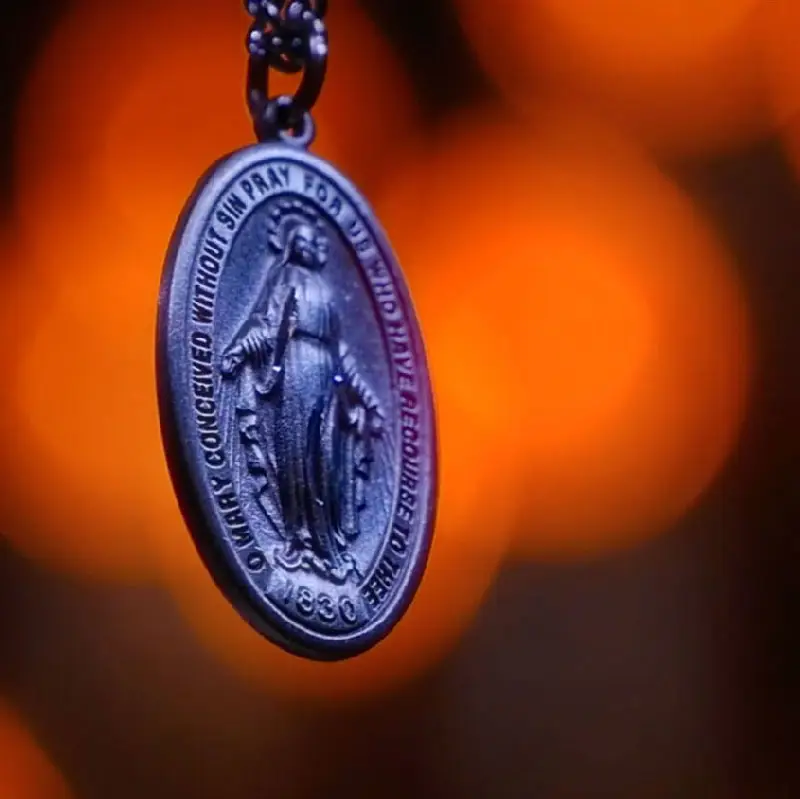
1865–1879
From Seminary to Public Chapel
Germantown, Philadelphia
In the growing Germantown neighborhood, the Vincentian Priests established St. Vincent Seminary to prepare young men for the priesthood. Soon after, plans for a private chapel blossomed into something greater when Archbishop James Wood encouraged the Vincentians to modify the plans so that the chapel would also serve the working class immigrants in the area who did not have a parish church at the time.
In 1879, the Chapel of the Immaculate Conception was blessed and opened to the public, becoming the foundation for the sacred space we know today.
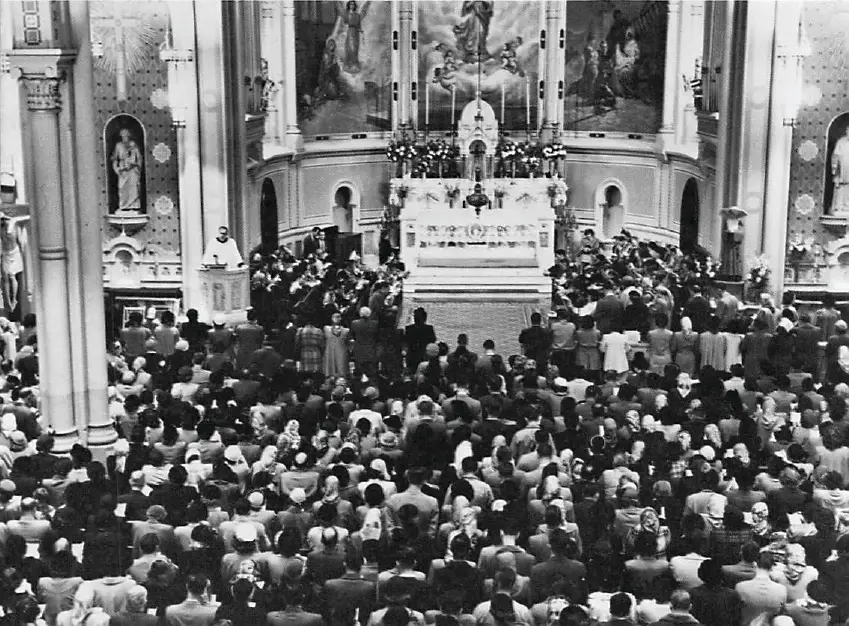
1915
The Founding of CAMM
Germantown, Philadelphia
By 1915, a young Vincentian priest named Fr. Joseph A. Skelly, CM had become known for his deep devotion to Mary and his dedication to serving the faithful. When he was tasked with raising funds to build a new seminary in Princeton, he placed his trust in her intercession.
Fr. Skelly slipped a small Miraculous Medal into every fundraising letter, and the response was overwhelming, far beyond anything he imagined. Out of gratitude, he founded the Central Association of the Miraculous Medal (CAMM) to spread devotion to Our Lady and support the Vincentian mission. What began as a local effort soon became a source of prayer, connection, and grace for millions around the world.
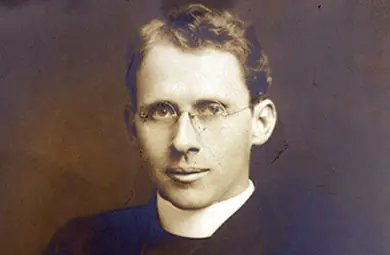
1927
A Shrine for Our Lady
Germantown, Philadelphia
To honor the Blessed Mother, Fr. Skelly oversaw the creation of a magnificent shrine within the Chapel of the Immaculate Conception. Here, pilgrims came seeking Mary’s intercession, lighting candles, offering prayers, and finding solace in the quiet beauty of the sacred space. This shrine became, and remains, the spiritual heart of CAMM.
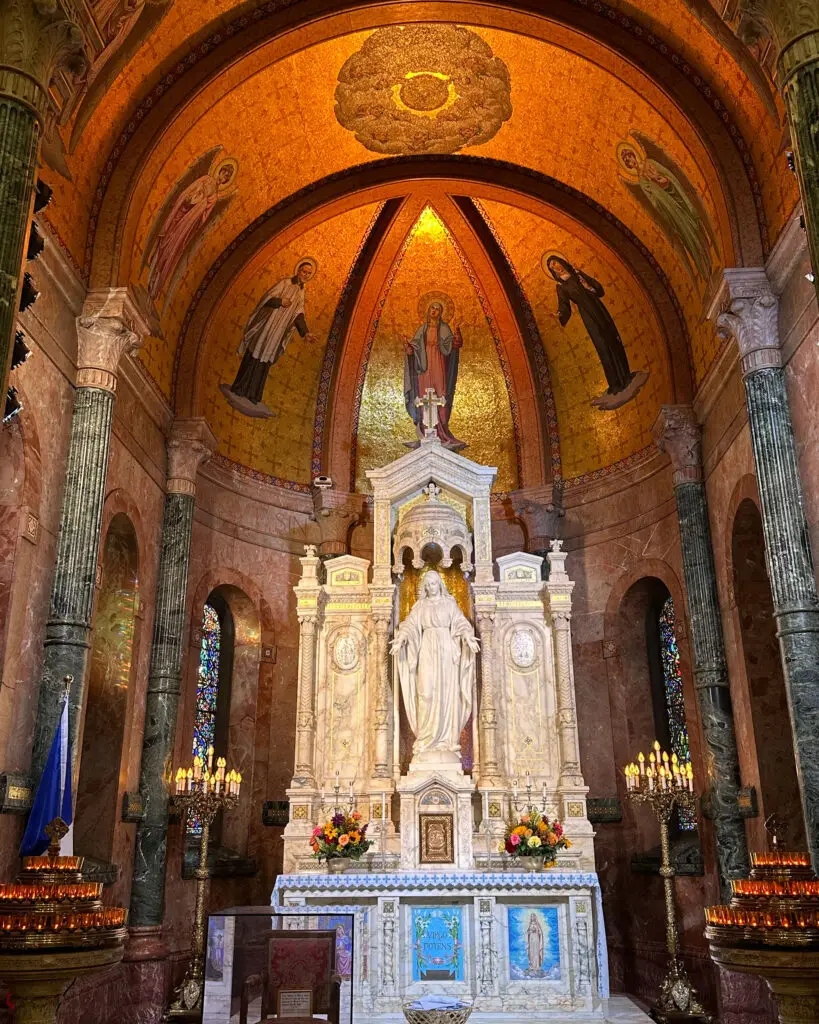
1930
The Monday Perpetual Novena Begins
Germantown, Philadelphia
On December 8, Fr. Skelly introduced the Perpetual Novena to Our Lady of the Miraculous Medal, inviting the faithful to gather in prayer each Monday. The response was immediate and extraordinary. By World War II, more than 15,000 people filled the Shrine every Monday, seeking Mary’s help and sharing in the grace of her intercession.
Ninety years later, Monday’s Perpetual Novena continues unbroken, uniting thousands of pilgrims worldwide, both in person and online.

1950s–1960s
Expanding the Mission
Eastern Province & Beyond
As devotion to the Miraculous Medal grew, so did CAMM’s mission. Under Fr. Skelly’s leadership, four new Vincentian seminaries were funded, preparing future priests to serve across the Eastern Province and beyond. During this time, Fr. Skelly also launched the Miraculous Medal Magazine, connecting hundreds of thousands of devotees through stories of faith and prayer.
Meanwhile, Marian artwork began pouring in from around the world — gifts of love offered to honor Our Lady. These treasures inspired the creation of Fr. Joseph Skelly, CM, Madonna Art Museum, now home to hundreds of original and rare works celebrating Mary’s beauty and grace.
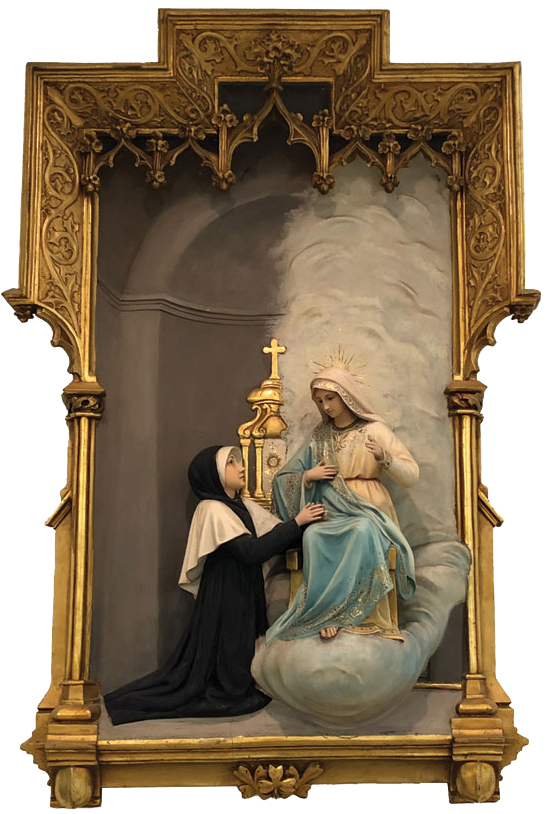
2020
An Unbroken Tradition
Global
When the world shut down during the COVID-19 pandemic, CAMM’s tradition of prayer never stopped. The Monday Perpetual Novena became a lifeline, uniting thousands of devotees from around the globe. Intentions were gathered, candles were lit in Mary’s honor, and a vigil lamp was placed at her statue, keeping the connection of prayer alive, even when the Shrine’s doors were closed.
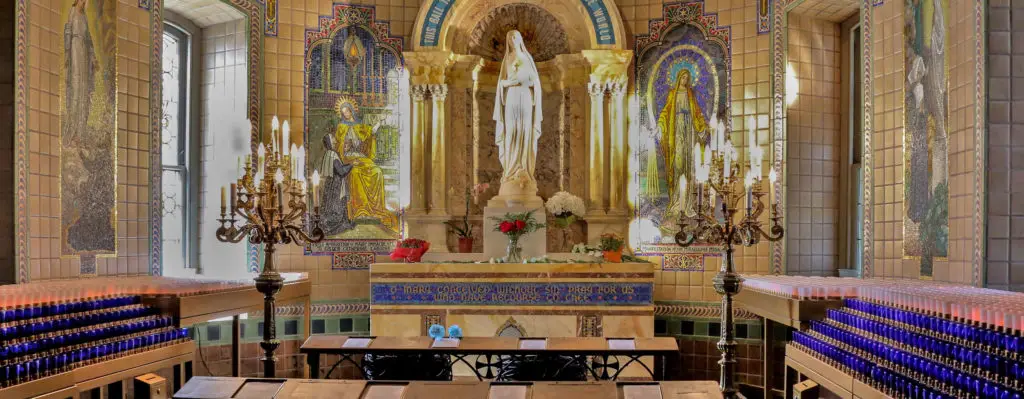
2022
Elevated to Minor Basilica
Germantown, Philadelphia
In December 2022, Pope Francis elevated the Shrine to the honor of Minor Basilica, renaming it The Basilica Shrine of Our Lady of the Miraculous Medal. This designation places the Basilica Shrine among fewer than 100 minor basilicas in the United States and recognizes it internationally as a place of pilgrimage, prayer, and grace.

Today & Beyond
Continuing the Mission
Germantown and Around the World
Today, CAMM carries forward Fr. Skelly’s vision of spreading devotion to Mary, supporting the Vincentian mission, welcoming pilgrims seeking grace and renewal, and ensuring our faith will continue for generations to come. From its home in Germantown, the Basilica Shrine continues to serve as the heart of this mission, while programs like Beyond Sunday®, online Novenas, cultural collaborations, and global outreach connect Mary’s Miraculous Medal Family around the world.

